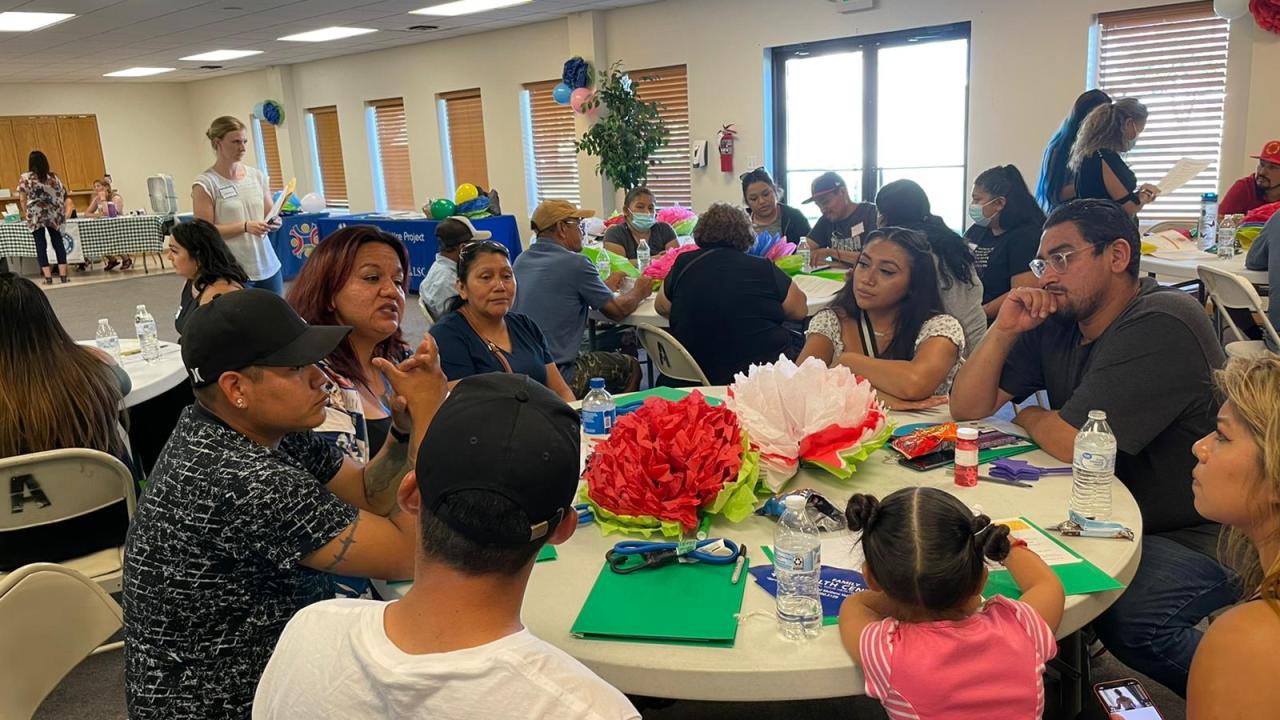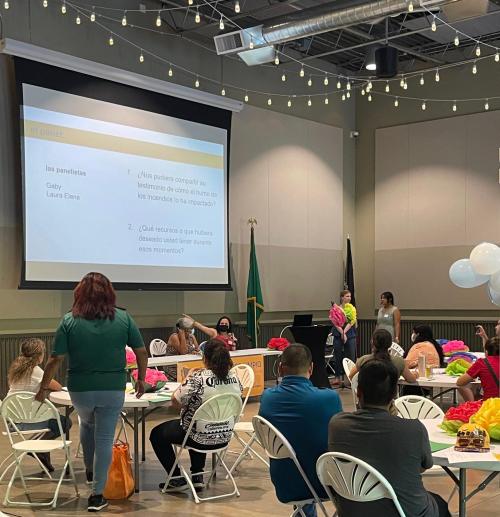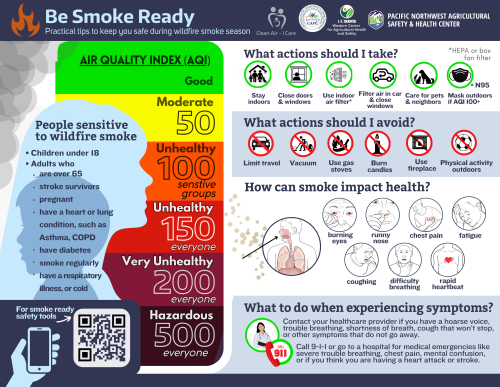
How Does Wildfire Smoke Impact Farmworker Parents in Washington State?
Quick Summary
- Balancing work and childcare is a persistent challenge for many families in the United States. Wildfires, which are increasing nationwide, add an additional challenge to the childcare and work dilemma.
- The researchers found that there is a need to find ways to help families cope with the stress of smoke events.
- Balancear el trabajo y el cuidado de los niños es un desafío persistente para muchas familias en Estados Unidos.
- Hay necesidad de encontrar maneras de ayudar a las familias a sobrellevar el estrés causado por los eventos de humo.
This is a summary of our March 2023 seminar with speakers Dr. Savannah D’Evelyn, postdoctoral fellow, Department of Environmental & Occupational Health Sciences, University of Washington and Laura Rivera, Environmental Justice Coordinator, Wenatchee CAFE.
About the Study

Balancing work and childcare is a persistent challenge for many families in the United States. Wildfires, which are increasing nationwide, add an additional challenge to the childcare and work dilemma. D’Evelyn and Rivera investigated this layered challenge with farmworkers in Washington state, which had a severe wildfire year in 2021, with smoke from June to October.
D’Evelyn and Rivera conducted 20 interviews with farmworker parents: 10 in Chelan County and 10 in Okanogan County. The questions asked were designed to understand the impact of smoke on farmworker parents balancing childcare with work and concerns about their children’s health related to wildfire smoke exposure. The overall aim of the interviews was to propose potential solutions to mitigate the stress of worrying about children’s exposure through safe and attainable childcare.
The interviews were followed up with two town halls organized around the interview results. The broad questions asked during the town halls were focused on health effects of wildfire smoke, if childcare was impacted by wildfire smoke, and mental wellbeing related to childcare during smoke events. The town halls consisted of a short review of the interview findings, round table discussions among the farmworker attendees, and ended with a full-group share back session.
Study Results
Six different themes were identified from the interviews and town hall meetings.
Theme 1: There is a need for more resources to prepare farmworkers and their homes for smoke events. There is a lack of knowledge about cost-share programs related to smoke-reducing improvements.
Theme 2: There is a need for more resources to prepare worksites for smoke events. At the time, there was only an emergency ruling for smoke exposure in Washington, which expired before the end of fire season. A permanent smoke rule is being implemented by Washington Labor and Industries in the next year.
“I would like them to teach us, like through workshop, or someone share information in the community. Like when the smoke and fire season is coming, what measures could we take? More information, because the truth is they don’t tell us anything.”—Study participant
Theme 3: The worksite response to smoke is unpredictable. Rules are generally followed related to working in heat or cold weather; however, there is no response related to smoke and ash in the air. Farmworkers are expected to continue to work and are often not provided with N95 masks.
Theme 4: There is a need for more accessible summer childcare programs. Universally, it is stressful to find accessible childcare, and there are access barriers towards financial aid for childcare for undocumented or immigrant families. This is especially difficult for the parent who is in the caretaker role, which often falls on women.
Theme 5: There is a need to find ways to help families cope with the stress of smoke events. Children and families get stressed or bored during smoke events because they cannot go outside. There is also a fear that evacuation notices do not get to people in time, especially as notices are sent via text in English only based on geographic location of the cell phone. This poses a two-fold challenge: many farmworkers do not speak English and children may be at home in a location different from the parent’s phone. This causes stress and worry for parents.
Theme 6: There is a need for smoke safety-related information for farmworker parents. Families are not given information about smoke-related health effects. Equity of materials created is essential, as the majority of current materials are only in English. Even if materials are in Spanish, literacy among farmworkers is limited. Therefore, materials should be in both English and Spanish, but in-person trainings may be the most valuable.
Outcomes

Wenatchee CAFE now provides N95 masks for free in Chelan and Okanogan Counties, with the aim to expand to more counties impacted by wildfire smoke. Wenatchee CAFE has also started a program called “Fire Adapted Communities” to teach people in the community about smoke impacts, home safety, evacuation safety and preparedness, and climate change. D’Evelyn, Rivera, and colleagues have also created a wildfire smoke safety magnet in English and Spanish that is being distributed to communities in Washington.
This research elevated farmworker voices and stories, and the investigators are now working towards additional solutions to improve access to information and resources to keep farmworkers and their families safe during the smoke season and beyond.
Recommendations
- Share message verbally, and require mandatory wildfire smoke training so that people are aware of smoke and how it impacts health.
- Provide N95 masks to farmworkers during wildfire smoke events.
- Improve emergency notifications and messaging throughout the state. There is the necessity for consistent messaging across the state. In addition, messages must be in English and Spanish and people should be encouraged to sign up for emergency notification text messages.
- Build a platform for farmworkers to share experiences with smoke.
- Create more opportunities for learning about the health impacts of smoke.
